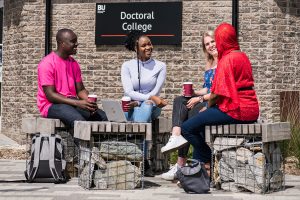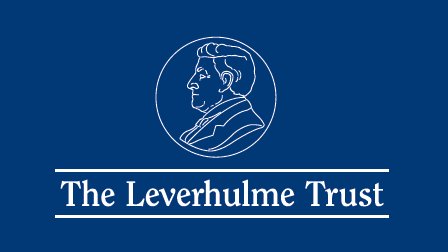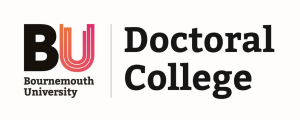The Economic and Social Research Council (ESRC) has announced new investment in 15 doctoral training partnerships (DTPs) spanning 89 institutions over the next five years, providing professional development and training opportunities to enhance the capabilities of doctoral candidates.
BU was part of a successful £15.3m bid which now enables colleagues to bid for prestigious ESRC-funded doctoral studentships.
We have partnered with the University of Bristol, University of Bath, Bath Spa University, University of Exeter, University of Plymouth, University of St Mark and St John (Marjon), and University of the West of England as part of the South West Doctoral Training Partnership (SWDTP).

The partnership will cover the breadth of social sciences, as well as areas of interdisciplinary research. The ESRC awards cover five years of PhD studentships, with the first intake beginning in October 2024. The ESRC aims to support 500 students a year nationwide across the partnerships.
The DTPs will also develop tailored training programmes for students and staff and support a wide variety of collaborative activities, including events and placement opportunities.
Professor Mike Silk, Institutional Lead for BU and a member of the SWDTP Management Board, said: “This is a prestigious award which will fund over 170 studentships across the consortium of SWDTP partners and provides us with an exciting opportunity to further elevate our postgraduate provision in both disciplinary and interdisciplinary pathways aligned with the ESRC.
“It allows BU staff and students to benefit from the leadership and research knowledge across all eight institutions and for BU to enhance and extend its research environment, promote and support excellent, innovative, diverse and interdisciplinary research, and foster transferable research skills and the career development of our postgraduate researchers.”
He added that the partnership will also bring additional benefits, with all registered postgraduate research students at BU now having access to opportunities for additional training across partner institutions, sharing best practice, resources and academic knowledge, placements, and funding for staff projects and events.
Fiona Knight, Head of The Doctoral College at BU, said: “The Doctoral College is excited to be collaborating with our partners in the SWDTP and the opportunity to share best practice, resources and academic knowledge.
“This partnership will strengthen our support for all of our social science postgraduate researchers and enable access to a network of social scientists across the DTP.”
The funding means that BU will now be able to bid for ESRC-funded doctoral studentships across several areas of excellence that align to the ESRC’s funding priorities – including Health, Wellbeing, and Society; Psychology; and Climate change, Sustainability, and Society.
Stian Westlake, ESRC Executive Chair, said: “Our vision for postgraduate training is that it will develop globally competitive social science researchers who can operate in interdisciplinary, collaborative, and challenge-led environments across a range of sectors and who have a diversity of backgrounds and experiences.
“This redesigned and expanded doctoral training opportunity will enhance the experience for PhD students and boost the UK’s capability.”
Find out more about BU studentships and opportunities through the SWDTP


 We are delighted to announce the launch of the 2018 BU PhD Studentship Competition for PhD projects starting in September 2018.
We are delighted to announce the launch of the 2018 BU PhD Studentship Competition for PhD projects starting in September 2018.













 Upcoming opportunities for PGRs – collaborate externally
Upcoming opportunities for PGRs – collaborate externally BU involved in new MRF dissemination grant
BU involved in new MRF dissemination grant New COVID-19 publication
New COVID-19 publication MSCA Postdoctoral Fellowships 2024
MSCA Postdoctoral Fellowships 2024 Horizon Europe News – December 2023
Horizon Europe News – December 2023